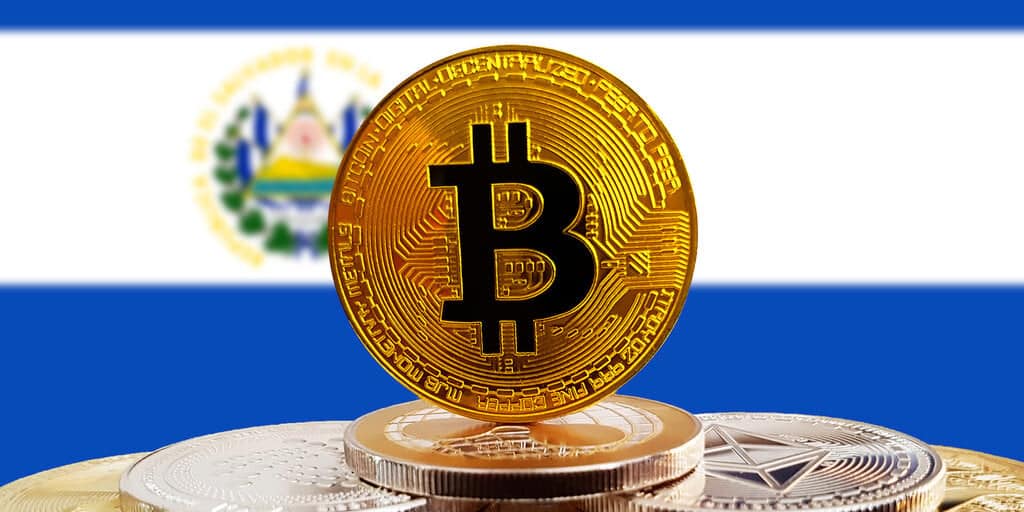In the evolving landscape of global finance, where traditional monetary frameworks are being challenged by the burgeoning crypto economy, El Salvador’s groundbreaking decision to legalize bitcoin as legal tender stands as a milestone. This bold move by the Central American nation has sparked a plethora of discussions, debates, and analyses on the viability and implications of integrating cryptocurrency into a nation’s economy. Amidst this multifaceted discourse, the International Monetary Fund (IMF)’s call for greater transparency in El Salvador’s bitcoin experiment emerges as a noteworthy point of consideration.
The Imperative for Transparency in El Salvador’s bitcoin Experiment
El Salvador’s pioneering journey into the realm of cryptocurrency, by adopting bitcoin as legal tender, has undeniably piqued the interest of the global community. This audacious policy maneuver aims not only to reshape the financial landscape of the nation but also to position El Salvador as a beacon for technological innovation in governance. However, the IMF’s recent statements highlight a critical aspect of this venture: the need for enhanced transparency.
The risks associated with integrating bitcoin into El Salvador’s economic fabric are immense, covering a broad spectrum of macroeconomic, financial, and legal challenges. Although the anticipated perils have yet to manifest significantly, the consensus underscores the urgency of adopting measures to bolster transparency and mitigate potential threats to fiscal and financial stability.
Navigating the Complexities of a crypto Economy
El Salvador’s commitment to its bitcoin agenda, despite the IMF’s warnings, reflects a firm belief in the transformative potential of cryptocurrency. The nation’s acquisition of bitcoin, amounting to a substantial investment from its treasury, signifies a resolute stride toward a digital economy. However, this leap into the cryptoverse is not without its complexities. The issue of transparency, or the perceived lack thereof, concerning the specifics of the national bitcoin investments has become a focal point of contention.
The implementation of the so-called bitcoin Law underscores El Salvador’s ambition to foster a crypto-friendly business ecosystem. This legislation, compelling businesses to accept bitcoin if technologically feasible, aims to spur economic growth and attract international investment. Yet, the practical uptake of bitcoin in commercial transactions remains tentative, underscoring the challenges of pioneering a path in uncharted economic territory.
Fostering Growth and Stability Through Dialogue
President Nayib Bukele’s engagement with bitcoin has not only incited scrutiny from global financial institutions like the IMF but has also ignited a broader conversation on the viability of cryptocurrencies in national economies. By countering criticism with a blend of defiance and humor, President Bukele underscores his administration’s commitment to this bold economic experiment. Yet, beyond the rhetoric, there lies a deep-seated intention to leverage bitcoin for national economic development and stability.
The ongoing dialogue between El Salvador and the IMF, particularly concerning a fund-supported program, offers a glimmer of hope for reconciling differences and forging a path toward sustainable growth. This engagement potentially lays the groundwork for a financial environment that harmonizes the innovative allure of cryptocurrency with the pragmatic needs of economic governance.
Conclusion: A Balancing Act of Innovation and Prudence
El Salvador’s venture into the world of bitcoin represents a fascinating intersection of technology, finance, and governance. As the nation navigates the intricate web of opportunities and challenges presented by its crypto policy, the global community watches with bated breath. The fundamental issues of transparency, risk mitigation, and economic viability loom large, underscoring the imperative for a balanced approach that embraces innovation while exercising prudent foresight.
The discourse surrounding El Salvador’s bitcoin experiment is far from concluded. It signifies a broader, ongoing exploration of how traditional economic models can evolve to embrace the digital age. As the nation strives to chart a course through untested waters, the lessons learned will undoubtedly contribute to the global conversation on the future of money, sovereignty, and the digital economy.
